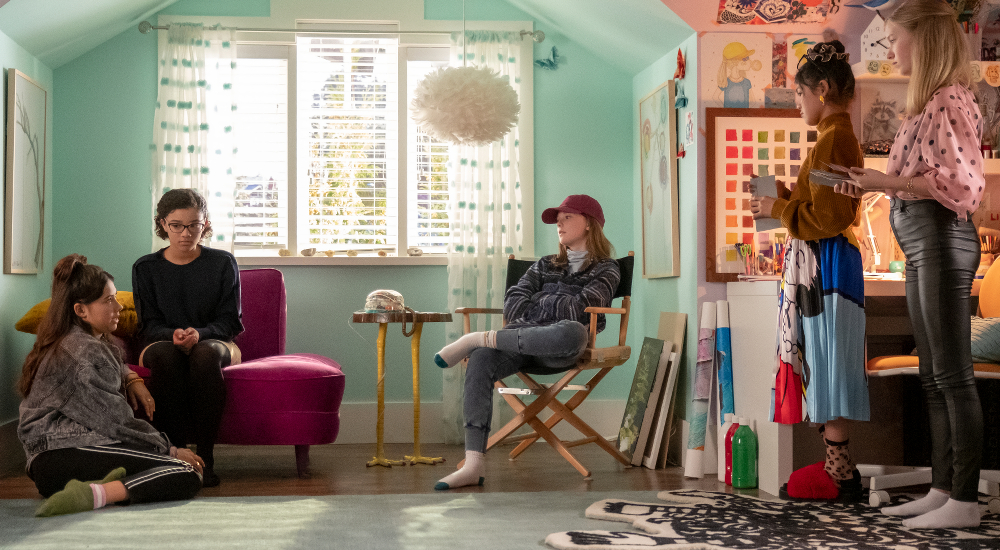"Why is this so hard?"
For more than a decade, shows like Riverdale, One Tree Hill, and The O.C. have touted twenty-something-year-olds as high school freshmen. Leaning heavily on the maturity and sex appeal of an older cast, they work to sell a phantom reality that is equally unobtainable and unrealistic.
Enter Netflix's The Baby-Sitters Club.
Based on Ann M. Martin's long-running and enormously popular book series, the newly revamped and modernized Baby-Sitters Club embodies a sense of innocence and self-discovery that often goes ignored. As a result, we get an authentic and straight forward look at a group of seventh graders who decide to start a business. Beyond the obvious, the show gives its characters a vibrant pulse and perspective that, unlike many previous adaptations, lives up to its source material.
Featuring a young cast of relative unknowns, the show tells a story rich in character development that embodies the trials and tribulations that accompany growing up, adapting to change, discovering your true identity, and growing apart and back together again. The show is kind without being fake, present without overbearing, and relative without resorting to politics. It contains several positive traits that allow it to broaden its appeal beyond the expected young girls and now aged avid readers. I fit neither of those camps and still find the series' debut season to be enjoyable.
Showrunner Rachel Shukert (GLOW) and executive producer Lucia Aniello (Broad City) have effectively created a Baby-Sitters Club that expertly blends the positivity and optimism of old with the modernization of the present. The girls still use a "vintage" landline phone to accept job inquiries while handling delicate issues surrounding cyberbullying and dare I say, menstruation. But beyond the polarizing metrics lies a heartfelt story that proves to be more of a procedural dramedy than initially assumed, with the cases centered on kids, not crimes.
The ten-episode season begins, just like the books, with "Kristy's Great Idea," which lays out the ground workings for the series. The episode sees Kristy Thomas (Sophie Grace) conceptualize a business idea when her mother, Elizabeth (Alicia Silverstone, fully repping the first generation of readers), is struggling to find a sitter.
Kristy's overconfident demeanor convinces her friends Mary-Anne Spier (Malia Baker) and Claudia Kishi (Momona Tamada) to start the club. Their involvement eventually brings Stacey McGill (Shay Rudolph), the new girl in town from the Upper West Side of NYC, and free-spirited Dawn Schafer (Xochitl Gomez) from California, into the fold.
Diverse casting helps broaden the appeal of the show, though the stories themselves do most of the talking as they encompass a wide range of relatable issues. However, I do admire that the season is consistently kind and humane. Though most conflicts introduced are wrapped up within a single episode, others become a bit more long-term, often a catalyst for side-stories and character depth. But no matter how entrenched within the conflict one becomes, the show never resorts to standard "bad guy" depictions. Even a group of high schoolers who "steal" Kristy's original idea aren't dissected and turned into manipulative monsters. They are smoothly dealt with, even if it is a bit quick for my liking.
Given our country's current state, I'm not convinced that we deserve something as wholesome and honest as The Baby-Sitters Club. Its joy and excitement are both authentic and sincere, creating a special moment worth experiencing.
*This series is streaming globally on Netflix. All ten episodes were reviewed.

